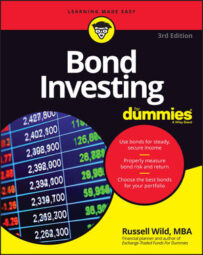Although Modern Portfolio Theory has its limitations, the science behind the theory is sound, and its real-world applications are profound. Given that just about all asset classes fell in 2008, some people have claimed that MPT is dead. Not so. Far from it.
First, 2008 was a once-in-our-lifetimes (so far) event. And even though all asset classes went down, they went down to different degrees, and they recouped at very different speeds. MPT is still alive and well . . . and very much legitimate.
The same cannot be said for other common theories on investing. Now is as good a time as any to blow a couple of these common deceits out of the water.
Here’s deceit number one: Timing the markets, finding “hidden” bond deals, and predicting changes in interest rates are the ways to manage a bond portfolio. And deceit number two: Successful buying and selling of bonds can boost your portfolio yields considerably.
Compare actively managed funds to index funds
The Oppenheimer Champion Income mutual fund’s latest prospectus explains that the fund’s manager, in choosing bonds for the fund, seeks a “‘bottom up’ approach, focusing on the performance of individual securities while considering industry trends. . . . He evaluates an issuer’s liquidity, financial strength and earnings power… [and] analyzes the overall investment opportunities and risks in different market sectors, industries and countries.”
The prospectus goes on to explain that the esteemed fund manager uses a slew of very sophisticated and complicated investment strategies and instruments, including options, futures contracts, swaps, structured notes, and mortgage-related securities. The prospectus is downright intimidating, even to someone who knows an awful lot about bonds. How can anyone read this prospectus and fail to be dazzled?
Keep reading. And stop being dazzled.
The Oppenheimer Champion Income Fund, C Shares (C shares means you pay a load or commission when you sell the fund), as of early 2012, boasts a ten-year annual return of –8.63 percent.
That’s a full 14.41 percent lower than the ten-year annualized return for the Barclays Capital Aggregate Bond Index (a popular index that estimates the return of all bonds in the United States), and a full 17.47 percent lower than the Merrill Lynch U.S. High Yield Master II Index.
The Oppenheimer Champion Income Fund is one of the more than 85 percent of actively managed bond mutual funds that failed to beat the Barclays Capital Aggregate Bond Index over the past ten years.
Forecast the future — you’ll get it wrong
So few actively managed bond funds succeed at beating the index because timing markets, predicting changes in interest rates, and finding “hidden” bond deals are very, very hard things to pull off. Even the highly educated and handsomely paid managers who run the nation’s largest bond funds consistently fail to do it.
Just as is the case in the stock market, bond markets tend to be efficient. Because so many investors are out there looking for a good deal, good deals are very, very hard to find.
Fund managers who spend hours and hours poring over company documents (so-called fundamental analysis) to find “hidden” deals usually fail to beat the market. Those who read charts that show the price of bonds going up and down and try to predict their future direction (so-called technical analysis) usually fail to beat the market.
Those who read The Wall Street Journal every day and can list all the leading economic indicators, from employment figures to the latest on the trade deficit, usually fail to beat the market.
Those few mutual fund managers who succeed at beating the market often succeed to such a small degree that they typically don’t add enough value to offset their high fees and the many costs of constant trading.
Most people buy into the belief that investment professionals, including bond mutual fund managers and bond brokers, know what they are doing and can pull off miracles. Millions and millions are spent on advertising each year so that people continue to believe. And yet year after year, those who buy and hold index funds — funds that simply track stock or bond indexes and charge little in fees — come out ahead.
Ignore the hype
It’s not that a good bond broker or bond mutual fund manager can’t be an asset to you. A handful of good bond mutual fund managers are out there.
Good bond brokers, who can help you structure a portfolio, build good bond ladders for regular income, and gauge a proper level of risk for your investments, are also out there. But please don’t believe the broker who says that he is privy to information that will help you score big in the bond world. Such inside scoops, legally or illegally obtained, are extremely rare.
Beware especially of the bond broker who pats herself on the back for never having sold you a bond that went into default. No Treasury or agency bond has ever defaulted. Defaults among municipal bonds are almost as uncommon as penguins in the Caribbean. And defaults in the corporate bond universe are fairly easy to avoid if you select top-rated quality bonds.
Bonds are ballast to a portfolio; they aren’t meant to make a killing. None of it is magic. None requires secret decoder rings. The best bonds are bought with common sense, frugality, and the knowledge that no bond is an island.

